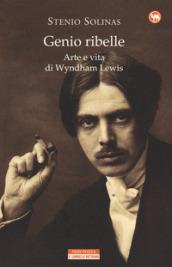
Genio ribelle. Arte e vita di Wyndham Lewis
Solinas Stenio
Genio ribelle. Arte e vita di Wyndham Lewis: Nella Londra novecentesca fra le due guerre, una strana figura d'artista fa il vuoto intorno a sé. Si chiama Wyndham Lewis e ha fondato una rivista che non ha collaboratori e espone un unico pensiero: il suo. Le ha dato come titolo «The Enemy», "Il Nemico", ed è quello che lui vuole essere, un fuorilegge solitario e un proscritto rispetto allo establishment e alle mode del suo tempo. Il risultato sarà l'ostracismo in patria e all'estero destinato a trasformarlo in un oggetto misterioso e in un soggetto infrequentabile. Già volontario nella Prima guerra mondiale, un'esperienza da cui trarrà olii e disegni che lo pongono al vertice della pittura inglese in materia, negli anni Venti Lewis cerca una nuova strada che superi il puro astrattismo e il romanzo psicologico. Egotista e collerico, amico e rivale di Pound come di Eliot e di Joyce, acerrimo nemico del "gruppo di Bloomsbury", con «The Apes of God», "Le scimmie di Dio", scrive la più devastante satira di un mondo intellettuale dove dilettantismo e giovanilismo si danno la mano per dar vita alla figura del "sempliciotto rivoluzionario", l'eterno bambino che gioca con il fuoco della rivoluzione, pensa che il nuovo sia sempre un progresso e essere alla moda una condizione dello spirito. Divenuto il più grande ritrattista della sua generazione, gli anni Trenta lo vedranno ingaggiare, sempre in perfetta solitudine, una battaglia contro i "compagni di strada" e la sinistra intellettuale inglese che flirta con il bolscevismo sovietico. In esilio volontario in Canada durante la Seconda guerra mondiale, Lewis tornerà in seguito in In the twentieth-century London between the wars, a strange figure as an artist create a vacuum around himself. It's called Wyndham Lewis and founded a magazine that has no employees and exposes a single thought: his. Gave her as ' The Enemy ', "the enemy", and that's what he wants to be, a lone outlaw and an outcast than the establishment and to the fashions of his time. This will result in ostracism at home and abroad intended to turn it into a mysterious object and a subject anathema. Already a volunteer in World War I, an experience from which to draw oils and drawings that put him at the top of English painting in the 1920s Lewis looks for a new road that goes beyond the pure abstraction and the psychological novel. Egotist and choleric, Pound's friend and rival as Eliot and Joyce, archenemy of the "Bloomsbury group", with "The Apes of God", "the monkeys of God," writes the most devastating satire of an intellectual world where amateurism and youthfulness join hands to give life to the figure of "simpleton revolutionary", the eternal child playing with the fire of revolution, he thinks the new is always a progress and be trendy a condition of spirit. Become the greatest portraitist of his generation, the 1930s will see him engaging, always in perfect solitude, a battle against the "companions" and the intellectual left English that flirts with Soviet Bolshevism. In voluntary exile in Canada during World War II, Lewis will return later in
Al momento non disponibile, ordinabile in 3 settimane circa
Dettagli Libro
- Titolo: Genio ribelle. Arte e vita di Wyndham Lewis
- Autore: Solinas Stenio
- Curatore:
- Traduttore:
- Illustratore:
- Editore: Neri Pozza
- Collana: IL CAMMELLO BATTRIANO
- Data di Pubblicazione: 2018
- Pagine: 220
- Formato:
- ISBN: 9788854513631
- Non catalogati - Non catalogati
Libri che ti potrebbero interessare
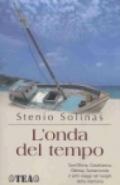
L'onda del tempo
Stenio Solinas
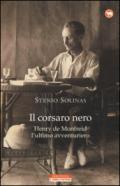
Il corsaro nero. Henry de Monfreid l'ult...
Solinas Stenio
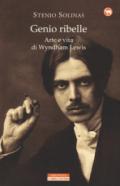
Genio ribelle. Arte e vita di Wyndham Le...
Solinas Stenio
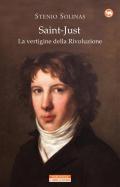
Saint-Just. La vertigine della rivoluzio...
Stenio Solinas
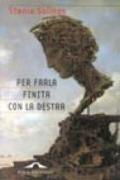
Per farla finita con la destra
Stenio Solinas
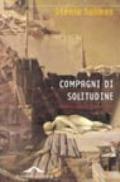
Compagni di solitudine. Una educazione i...
Stenio Solinas
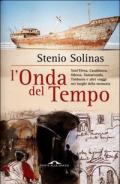
L' onda del tempo
Stenio Solinas
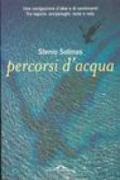
Percorsi d'acqua. Una navigazione d'idee...
Stenio Solinas

Gli ultimi mohicani. Quel che resta dell...
Solinas Stenio
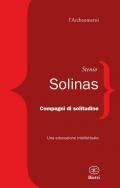
Compagni di solitudine. Una educazione i...
Stenio Solinas
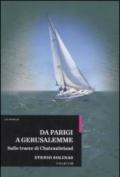
Da Parigi a Gerusalemme (Le Stelle)
Solinas Stenio

Atlante ideologico-sentimentale
Stenio Solinas






